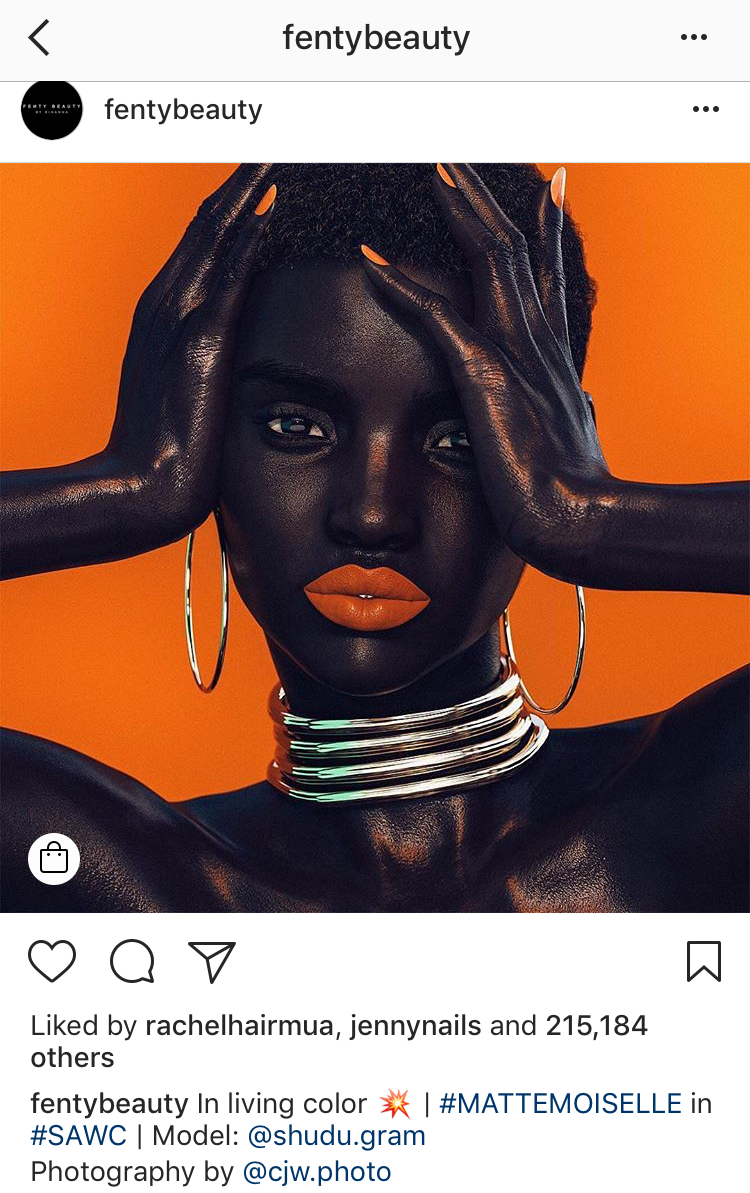When Rihanna created Fenty Beauty, she proved that there was a demand for more products for darker complexion people in the beauty industry. Fenty Beauty is an inclusive makeup brand aimed at every skin tone from the lightest to the darkest, with the darker shades being especially popular. Her brand might not have been the first one focusing on the lack of diversity in the industry, but she offered a range of shades and undertones that was practically unheard of at the time. And then, a few weeks ago, this same brand that is making their target embrace their uniqueness and feel proud of their genetics, advertises one of their lipsticks on their social media using a flawless computer-generated model called Shudu Gram. Is this a publicity stunt or just proof that we can't trust anyone anymore?
Don't get me wrong, Shudu Gram is stunning. She is a work of art and I personally think that her creator, photographer Cameron-James Wilson, is an amazing 3D artist. My concern doesn't come from the art itself or the possibilities of the medium; nor with the fear that some other people in the industry have that machines will take over our jobs (models, photographers, makeup artists, hair stylists, stylists, etc.). What worries me is the message that the brand is sending to everyone who consumes their products, that no matter how much money you spend on them, you will never look as perfect as a CGI model.
In all honesty, it's insulting. In times when companies like CVS are forcing makeup brands to stop selling their products with deceiving advertisement campaigns that have been photoshopped to the extreme, or when social media platforms are making the so-called influencers admit that they are just outsourced sales reps selling products for the brands that they represent, a brand cannot make the mistake of calling themselves diverse and inclusive while promoting an unattainable beauty standard.
It is really disappointing and it makes me wonder if this is a publicity stunt aimed at creating controversy. Be it as it may, brands should be really careful about how they communicate with their customers. For, in the end, real people buy their products. CGI models don't.
Photo credit: behind the scenes with Anna Sawyer by Rachel Williamson.
Do you like what you just read? Subscribe to my weekly blog posts here!

